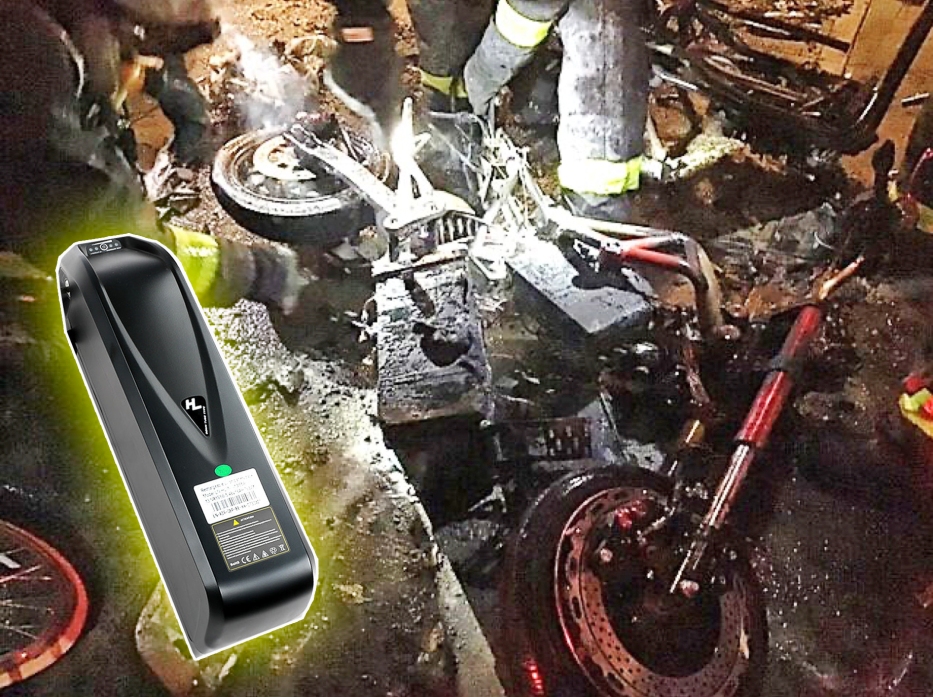App companies should step up to ensure delivery workers have access to safe bike-charging amid a rash of deadly fires linked to faulty or second-hand lithium-ion batteries, city officials said on Monday — urging tech firms to follow Uber's lead after it unveiled two trade-in pilot programs last week.
"Businesses that rely on the hard work of delivery workers ... have certain responsibilities to ensure that folks have access to safe devices and safe vehicles," Department of Consumer and Worker Protection Assistant Commissioner Carlos Ortiz testified during a City Council hearing on legislation to create a city-run buyback program.
Lithium-ion batteries power e-bikes and other devices often used by delivery workers, but the app companies that fuel their use have been conspicuously absent from the city’s recent response aside from a one-line reference in its recent "action plan" to the companies' “responsibility."
The city’s more than 65,000 delivery workers — the majority of whom are low-income immigrant men — take home just $7.09 per hour on average, excluding tips, making it difficult for them to afford batteries approved by the internationally known Underwriters Laboratory, which can cost up to $1,000.
There have been 63 FDNY investigations into lithium-ion-related fires so far in 2023 — causing 52 injuries and five fatalities, according to officials. Lithium-ion battery fires caused six fatalities and more than 140 injuries in 2022, according to the city's official tally. The latest deadly blaze, last week in Queens, killed a 7-year-old boy and 19-year-old girl.
“We’re failing as policy makers if we’re not protecting folks from that,” buyback bill sponsor Council Member Keith Powers said during the hearing.
Fires sparked by lithium-ion batteries are a crisis that requires immediate action.
— Keith Powers (@KeithPowersNYC) April 17, 2023
Today at 10 am the Committee on Fire & Emergency Management is holding a hearing on 2 bills I’m sponsoring to get unsafe batteries off the streets.
Tune in below ⬇️https://t.co/pZNjEhZCKG
Powers's bill, Intro. 949, would require the Department of Consumer and Worker Protection to team up with the Department of Sanitation and the FDNY to establish a program that provides safe, new lithium-ion batteries at no or reduced cost.
Powers (D-Manhattan) introduced the legislation following Streetsblog’s proposal on the concept. A second bill, Intro. 950, would require companies provide workers “with fireproof containers suitable for charging removable storage batteries used to power these bicycles.” Both bills have the support of a majority of Council members.
The FDNY in its testimony joined DCWP's call on companies to do more to protect their workers — explicitly calling for safe charging stations outside of people’s homes — but declined to comment on the legislation citing the ongoing work of the Mayor’s E-Micromobility Task Force.
“People have to step up,” said Julian Bazel, the Fire Department’s Code Counsel. "Similarly, as the bill under consideration here addresses, employers of people who are using e-bike and other devices need to provide charging facilities in a safe way so possibly they don't have to do it in their own home."
The Adams administration is “very much aligned in spirit” with the intent of a battery buyback program, Ortiz said. He declined to say how a city-run program would work — including who would be responsible for providing the new, safe batteries or discarding of the old ones, where the money would come from, or how much.
“Those are important questions that the task force are also working through as we try to consider how to implement the program,” he told Council members.
Uber's competitors in the app-based delivery business include Relay, Grubhub and Doordash.
Reps for Relay did not respond to a request for comment. Grubhub and Doordash both provided statements expressing a willingness to work with city officials.
"We are actively pursuing partnerships to ensure safer e-bike use while preserving access to the bikes for those independent delivery partners who rely on them,” said Amy Perlik Healy, vice president of government relations at Grubhub.
Doordash already partners with the e-bike company Zoomo — the same one that Uber teamed up with — and Dirwin to provide workers discounts on their bikes, a company rep said.
The company looks forward to "working with policymakers, transportation advocates, community partners, and other stakeholders to improve e-bike safety for everyone in our communities," said the spokesperson.
E-bike workers may struggle to afford safe hardware on their own. City leaders last month capitulated to delivery app lobbying efforts and withdrew plans for a $23.82 minimum wage for delivery workers — proposing just $17.96 per hour instead to start, with the rate rising to $19.96 by 2025.






